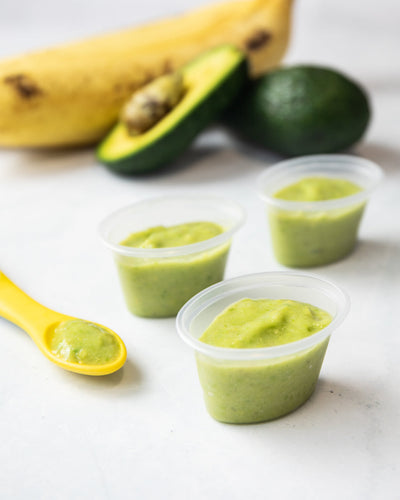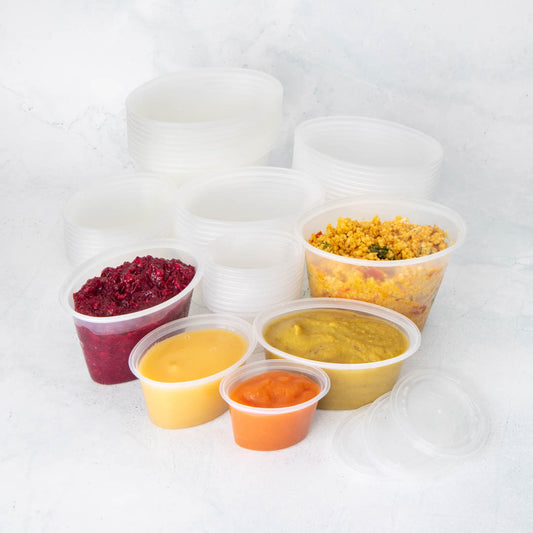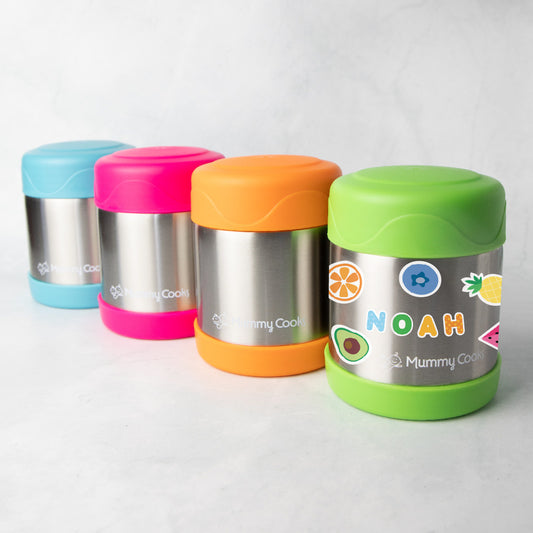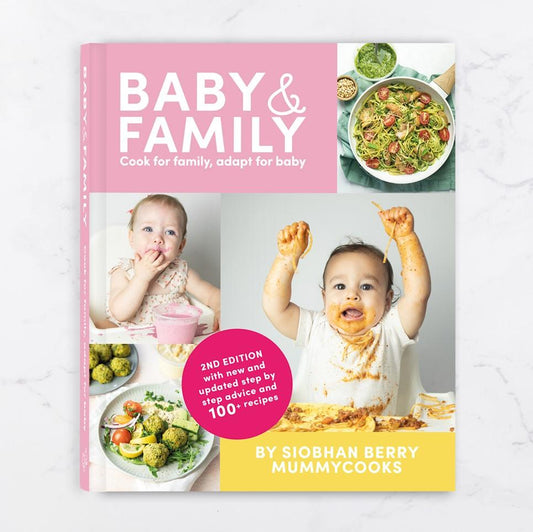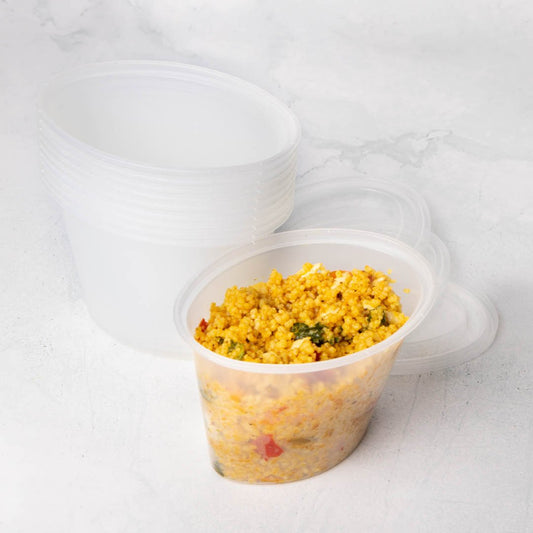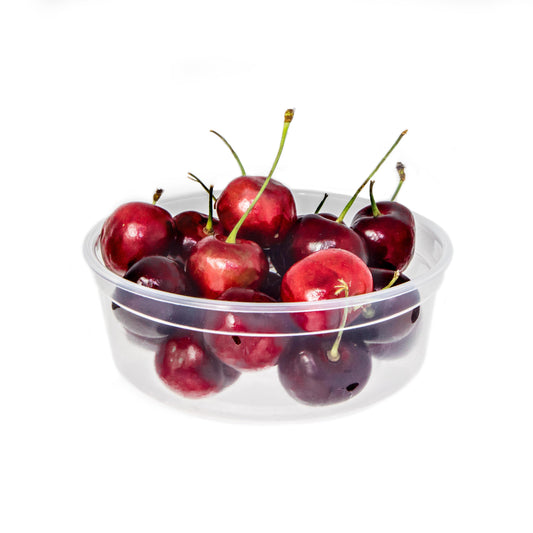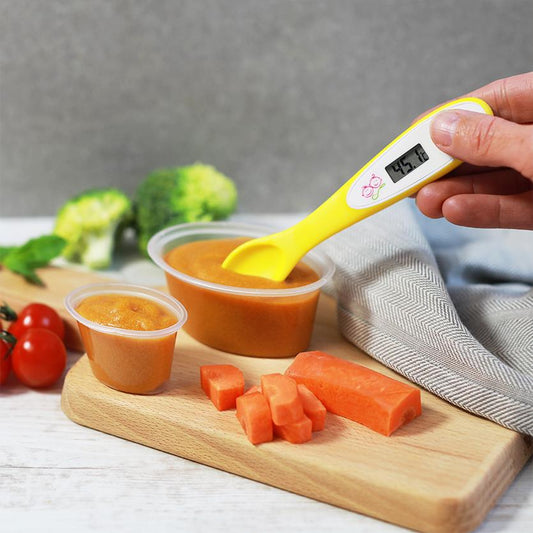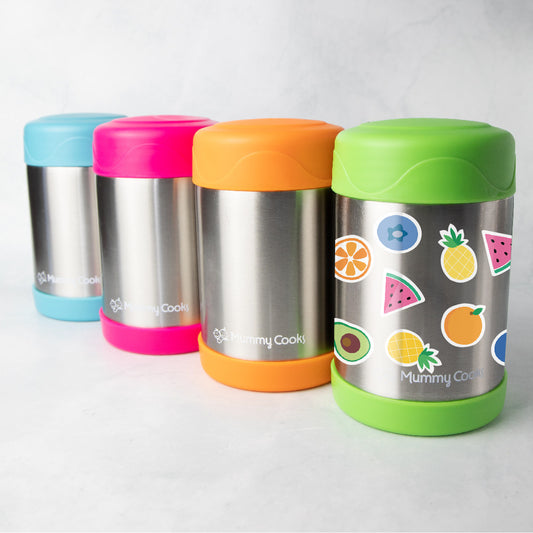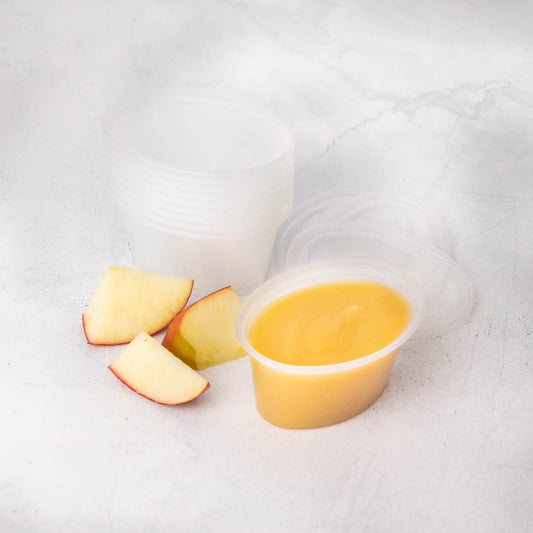Choosing the right foods for your kids meals can be difficult. We all know that fruit and vegetables are good for children, along with fresh meat and fish, but things are less clear beyond that. Knowing what to buy in the supermarket can be confusing, especially when shopping for your little ones. Follow our best tips on how to shop wisely for your children for fuss free family meals and snacks your weaning baby can enjoy too.
-
Check the label: Ingredients are listed in order of quantity. For example, if sugar is listed first, there is more sugar in that product than anything else! Don't be caught out by believing the first thing you see on the front of packaging. This can often be misleading so before putting an item into your basket, be sure to know what is in it! Avoid sugary snacks by making your own or opt for healthier alternatives.
-
Read per 100g: All nutrients must be given per 100g. In relation to food the following apply:
Sugar - a lot is more than 10g per 100g and a little is less then 5g per 100g
Total Fat – a lot is more than 20g per 100g, a little is 3g per 100g.
Salt – a lot is more than 1.3g per 100g and a little is less then 0.3g per 100g -
Compare brands: Is there another brand that is lower in sugar, fat or salt? Comparing brand can be surprising, and sometimes own brand names may even be better for you than the well-known brands. Always compare both the ingredients and the nutritional values per 100g before choosing between two.
-
Be aware of naturally occurring ingredients: Certain foods are naturally high in sugar, fat and salt such as cheese and yogurts. But this does not mean they are unhealthy foods! If given in moderation, they are fine for your kids. Once they are 'real' foods or have good ingredients, they are good choices for your children.
Check out our advice on Children's Taste Buds for more on Real Foods. -
Fat: Children need more fat in their diets than adults. But what is really important is the type of fat consumed.
Monounsaturated fat – found in olive oil and avocados, is very beneficial to your child.
Polyunsaturated fat – found in vegetable oil, sunflower oil and oily fish, is very good for your child’s health and well being.
Saturated fats – foods like fatty and processed meat, ready meals, biscuits and cakes is not good for your child’s health.
Trans fat – worse again and is found in processed foods such as ready-meals, biscuits, cakes, crackers and confectionery. -
Butter or Margarine? Butter is made from animal fat and margarine is made from vegetable fat. Both contain a high amount of fat, but margarine contains far less saturated fat and is often fortified with vitamin D and other vitamins making it the preferred choice.
-
Food additives: Additives are often used to colour, sweeten or preserve foods and are very common in supermarket products. If a food contains an additive, it must be stated on the label with either the full name or ‘E’ number. It is best to avoid additives where possible, as they are linked to hyperactivity in children.
-
‘Children’s foods’: There has been a huge increase in ‘Children’s foods’ seen on the market over the past few years, most are higher in sugar. There is no need to choose special foods for children. Children can be given almost any adult cereal, with exception of high fibre cereals or those containing whole or chopped nuts. Our Baby Muesli is a great alternative to sugary children's cereals, topped with fresh fruit for some added sweetness.
-
Children’s yogurts: Choose a yogurt that is comparatively lower in sugar and fat. Most yogurts contain more the 8g of sugar per 100g so it is important to compare brands. Don't be tricked by labels claiming the product is 'high in calcium' or 'perfect for growing bones'. These claims can often mask the high sugar contents. Plain whole natural yoghurts are the best option here. Simply stir in some fruit purees that you can batch cook and store in Pots from the Starter Weaning Set for handy naturally sweet stir-ins any day of the week.
-
Low fat food: Do not give a child under 5 years diet or low fat foods or dairy products. The added sweeteners aim to replace the flavour lost when the fat was removed but can cause stomach upsets. Instead, opt for full fat products but check the labels for additives or unnecessary ingredients. Remember that everything is okay in moderation.







